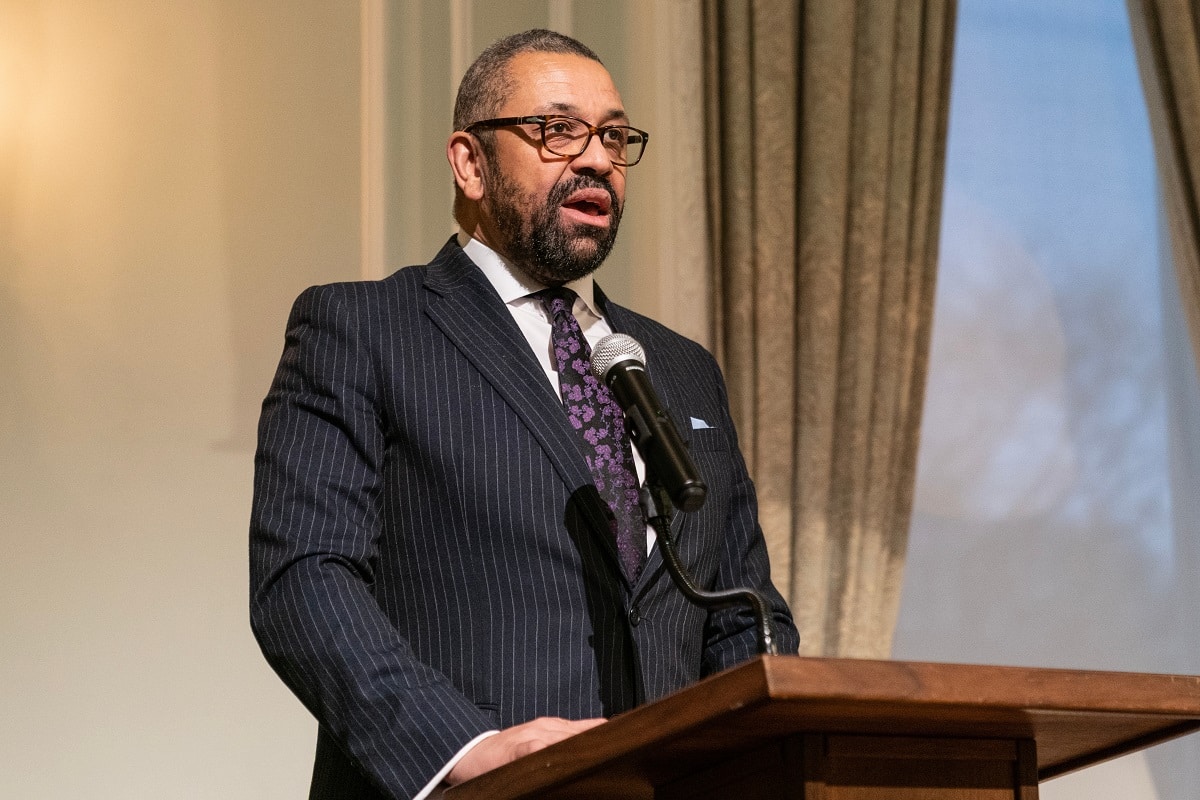UK Home Secretary James Cleverly has voiced concerns over international students potentially undermining the integrity of higher education, as university leaders and policymakers grapple with the implications of proposed changes to the graduate visa route. Here’s the full story.
Doubling Down
Following Lee Anderson’s departure from the Conservatives to the anti-immigration Reform UK party, it seems the Conservatives are trying to double down on their anti-immigrant sentiments to win over like-minded voters.
Just this week, Home Secretary James Cleverly has sparked a debate over the role of international students in UK higher education. Cleverly has claimed that international students who come to study in the UK undermine the integrity and quality of the system under which they study.
Cleverly’s remarks, written in a letter to the Migration Advisory Committee (MAC), suggest that some international students may be using university courses primarily to secure work visas rather than for academic pursuits.
“Brightest and the Best”
In his letter, Cleverly worried that the graduate visa entitlement, which allows international students to work in the UK for two or three years post-graduation, might not attract the “brightest and the best” talent.
Cleverly made clear that the government wished to ensure that “the graduate route is not being abused. In particular, that some of the demand for study visas is not being driven more by a desire for immigration.”
Cleverly stated, “An international student can spend relatively little on fees for a one-year course and gain access to two years with no job requirement on the graduate route, followed by four years’ access to a discounted salary threshold on the skilled worker route. This means international graduates are able to access the UK labour market with salaries significantly below the requirement imposed on the majority of migrant skilled workers.”
Potential Repercussions
In response to Cleverly’s concerns, university leaders have voiced apprehension about the potential repercussions of restricting or abolishing the graduate visa route.
They fear that such punitive measures could significantly decline international student recruitment, resulting in financial difficulties for universities heavily reliant on income from international tuition fees.
Rachel Hewitt, chief executive of the MillionPlus group, which represents several universities across the country, stated, “It is impossible to imagine the government going out of its way to make Britain less inviting to investment in almost any other sector—and yet every negative headline and policy reform makes Britain less attractive to international students.”
She continued: “The graduate route is a key component of the offer that UK universities can make to international applicants, and its value should be recognized and not eroded.”
Who Could Have Done This?
The graduate visa that Cleverly asked MAC to investigate was reintroduced by his governing party, the Conservatives, back in 2019 to help UK universities compete with global counterparts, particularly those in the US and Australia.
Cleverly cites “early data,” indicating that a relatively low percentage of international students transitioning to the skilled workers route secure graduate-level jobs.
He highlights concerns about the salary levels of these jobs, with only a third of students securing positions paying more than £26,000 per year.
Rather than viewing this as a damning indictment of the employment opportunities generated by the economy Cleverly and his party have been in charge of for the last 14 years, Cleverly has tasked MAC with investigating potential abuses of the graduate route, as well as its impact on the integrity and quality of UK higher education.
Evidence of Abuse
The committee is expected to examine evidence of abuse and evaluate the effectiveness of the route in attracting and retaining high-quality international students.
The MAC’s findings, expected to be released in May, could have significant implications for the higher education sector, particularly amidst a challenging environment characterised by declining overseas student enrollments. University leaders have warned that visa restrictions would be tantamount to “an economic act of self-harm.”
While the self-serving debate launched by the Home Secretary may help his party’s election chances in the short term, UK universities have witnessed a 40% drop in the number of international students choosing to study in the UK.
Anti-Immigration Sentiment
While concerns about abuse of the system may seem valid, the government must first ask why such a steep drop has taken place and whether it has anything to do with the constant ramping up of anti-immigration sentiment from the Conservatives, which is making Britain a less welcoming country to choose to study in.
The government must also consider the potential consequences of policy changes on universities, students, and the UK’s global standing in higher education.
For a country that prides itself on having some of the oldest and best universities in the world, cutting off their access to the best and brightest the world has to offer, and the desperately needed money those students bring in seems short-sighted at best.
More Articles Like This…
Broken Britain: 12 Reasons Behind the UK’s Decline
Say the Unsayable: 10 Occasions When Farage Spoke His Mind About Britain
The post Cleverly Raises Eyebrows with Comments on International Students to Universities’ Dismay first appeared on Edge Media.
Featured Image Credit: Shutterstock / lev radin.
Grant Gallacher is a seasoned writer with expertise in politics and impactful daily news. His work, deeply rooted in addressing issues that resonate with a wide audience, showcases an unwavering commitment to bringing forth the stories that matter. He is also known for satirical writing and stand up comedy.

